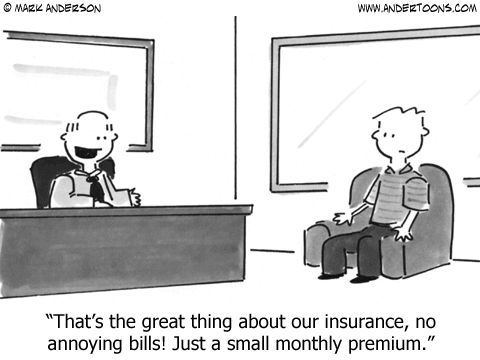You hear a lot of argument in the insurance community about what type of insurance you should have. In the term vs whole life debate, which one wins? I have been telling people this for 20 years and I still say it today, “The best type of insurance to have is one that is paid up and in force on the day you die.” I’ve never had a beneficiary come to me and ask if it was a term or whole life policy they are receiving a check for. But what about the question of which type of policy should you buy in the first place. I will make a blanket statement that might have some exceptions, but I believe it is basically true. If you are between the ages of 20 to 60 and you are buying insurance for a temporary need such as kids still in the house or in college, a mortgage that you want paid off if you die or other types of obligations that will be left unpaid at your death, term insurance almost always makes the most sense. Why is this? It’s because with term insurance you are paying only for insurance protection and you are buying the amount of insurance you need at the lowest possible price for your circumstances.
…with term insurance you are paying only for insurance protection and you are buying the amount of insurance you need at the lowest possible price for your circumstances.
Term insurance has 3 major components that work like this:
• Death Benefit – This is what is paid to your beneficiaries if you die and will usually remain unchanged for the life of the policy.
• Premium – This is the amount you pay each month. This amount will remain the same for the term period.
• Term Period – This is the number of years your premium stays the same. This can be as few as one year or as much as 40. The most common term period in my experience is 15 or 20 years. The shorter the term period, the lower the premium.

Whole life has a savings component built in to the policy so you accumulate a cash value. This sounds like a benefit over term which builds no cash value at all. But is it really? You have to pay more premium, sometimes 5 times the term premium to fund the whole life death benefit and cash value. My experience is that whole life premiums when high death benefits are needed, simply do not fit in the budget of a young family. Also, if you were to die prematurely, most whole life policies are designed so that you only get the death benefit, not the cash value as well.
What if you outlive your term, you’ve built no cash value in the policy and you are uninsurable due to health conditions? One vital feature that must be in all term insurance policies you consider, is convertibility. This means that you have the guaranteed right to convert your term policy to a whole life or other permanent policy at the end of the term with no medical questions. This relieves you of the possibility that you can outlive your term and have no options due to being uninsurable. Most competitive policies are convertible up to age 70.
There are many circumstances where whole life is a viable solution. When used in certain business situations for tax deferred cash build up and income tax free death benefit protection, it can be a powerful financial tool. I also believe that for those over age 60, a permanent death benefit becomes important because you don’t want to outlive your term when you are 80 years old and have very limited, if any, options. But for most in the middle, family market, it is my opinion through years of experience, that the one who benefits the most from the higher whole life premiums are the agents who sell them as they earn much higher commissions than they would from a term policy with the same death benefit.
